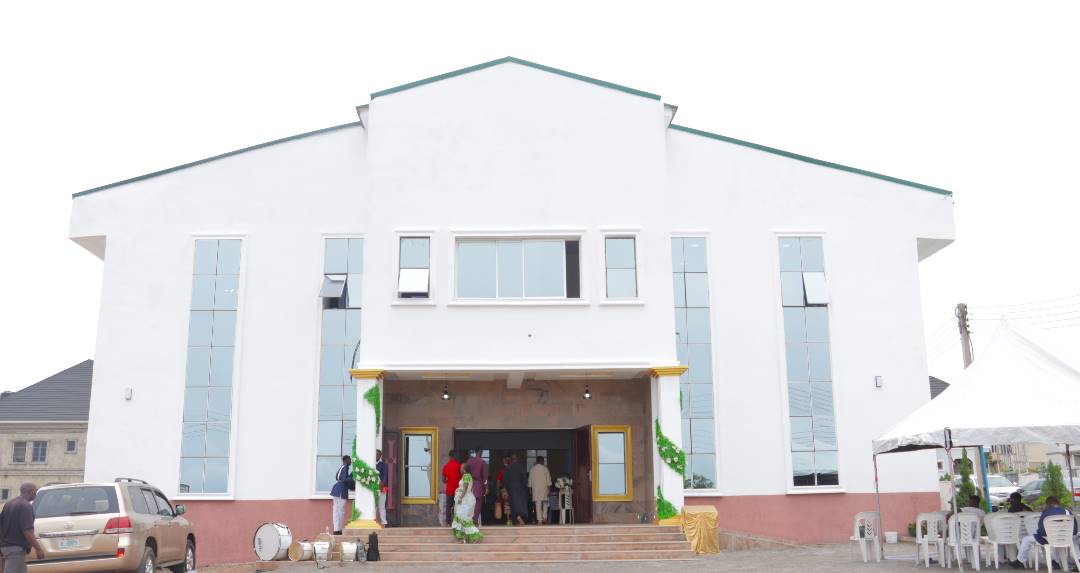The blockage of food and cattle from the Northern parts of the country to the Southern parts is beginning to take a toll on Lagos and other South-Western cities and towns, DAILY POST investigation has revealed.
Though the threat to withdraw cattle and food supply to the South had initially been thought to be a joke or a mere threat that cannot be acted upon by many, especially those in the South, who heavily depend on vegetables, especially tomatoes, pepper and onions from the North. They were, however, jolted into reality after videos emerged online showing trucks loaded with perishable goods, yams and cattle being blocked and turned back at a village shortly after Jebba, at the border between Kwara and Niger States.
That singular action and its attendant implications on the availability and prices of meat, vegetables and other goods from the North, have shown how deeply dependent the South has become in terms of food supply.
How it all Started
DAILY POST had reported a threat by the Amalgamated Union of Foodstuff and Cattle Dealers of Nigeria (AUFCDN) to withdraw the services of their members nationwide if the Federal Government fails to pay them a whopping sum of N450 billion as compensation for the killings of their members and the losses incurred in the course of supplying foodstuff and cattle to different parts of the country.
The union, which gave the government a seven-day ultimatum to compensate its members, also alleged payment of multiple taxes in the course of the cross-country supplies.
The President of the union, Muhammad Tahir, while addressing a press conference in Abuja, claimed that they have been subjected to intimidation, humiliation and destruction. He also added that 151 of their members were killed during the #EndSARS protests last October while 100 were murdered during the Sasha market crisis in Ibadan, Oyo State.
Tahir said amongst other things requested was an, “agreement between state governments and the union that henceforth, if any violence erupts in that state and our members are attacked, we will not hesitate to immediately withdraw our services.
‘’Based on the above, we are, therefore, giving the federal government seven days ultimatum within which to address the issues raised, or we have no option than to call our members out on a nationwide strike.’’
Following the footsteps of the AUFCDN, the Bauchi State branch of the Miyetti Allah Cattle Breeders Association of Nigeria (MACBAN),
also vowed to stop the sale of cattle to southern Nigeria,
The Bauchi MACBAN, at a press briefing in Bauchi, hinged its threat on another alleged threat by governors of the South-West to evict herdsmen from their states.
Angry Reactions
With the seeming success of the food blockage, which is still at the early stage, the Middle Belt Forum and the Yoruba apex sociocultural organisation, Afenifere, have come out to condemn the action.
For the Middle Belt Forum, it was shocked by the action, which it described as orchestrated and unpatriotic.
Dr. Bitrus Pogu, the National Chairman of the forum, said: “We are not only stunned by this act which we believe is orchestrated by some unpatriotic elements but also shocked at this despicable action.
“Amid the ongoing banditry in various parts of the country, the deliberate blockage of food items is nothing short of waging another form of terrorism on Nigerians. We cannot as a nation afford to deal with these urchins and bandits with kid gloves,” he added.
The Afenifere, however, has a different reaction from that of the Middle Belt Forum. It told the North that it was okay for them to withdraw their food, but they should remember that southern states produce petroleum, the country’s economic mainstay.
The Afenifere, in a statement by its National Publicity Secretary, Yinka Odumakin, noted that the South has other sources of protein apart from consuming cows.
“They should not forget that petroleum goes from South to the North. So, they should be careful. When you are throwing stones at your neighbours, you should be careful what he throws back at you.
“If they withdraw their cows from the South, no problem about that. Before cows, we had what we were eating. Cows are not the only source of protein; there are several other sources. It will encourage our people to do more in the area of agriculture.
“We have neighbours who are peaceful in Benin Republic, Togo, and other places that we can buy things from. They can’t threaten us with anything such as withdrawal of item”, Odumakin said.
Feeling the Pains of Scarcity, Soaring Prices
It’s just about a week now that the food blockage started and the impact is being felt loudly in Lagos and other cities and towns in the South-West.
A visit by DAILY POST to the Kara meat market along the Denro-Ishashi road in Ifo Local Government Area of Ogun State, best exemplified the impact of the blockage as the usual bubbling market was a shadow of itself.
DAILY POST observed that there was no cow meat on sale as none was slaughtered as at 2pm on Monday (yesterday)
In a brief chat with one of the popular meat sellers at the market known as Baba Ijebu, it was revealed that the food blockage has caused serious scarcity of cows and a few available were simply beyond reach.
“Long before now, we were buying a medium size cow for N150, 000 or thereabout, but it went up to more than N250,000 even before the blockage. Now, it is simply not reasonable at all. There is no point buying a cow, slaughter it and not able to sell to make profit.
“Only a few are available for sale and the price has become so unreasonable because of the scramble for it by so many people. Remember that it is also the same places we buy from that people from Lagos State also buy from because here is almost seen as part of Lagos”, Baba Ijebu said.
If the situation is seen as unreasonable, those selling pepper and tomatoes believe there is an impending danger if things do not change very soon.
At a neighbourhood market at Ojodu Berger area of Lagos State, DAILY POST observed that four pieces of medium size tomatoes go for N100, with the sellers easily infuriated if anyone unduly challenge them over it.
A woman in her early fifties who sells pepper and tomatoes at the market, explained to DAILY POST what led to the unbearable cost. According to her, the last time she went to the market before the blockage, she bought a basket of tomatoes for N15,000 but at the weekend, the same basket was sold for N38,000.
“People are complaining that tomatoes and pepper are too expensive, but it’s not our fault, we are selling just as we bought. There is no way I will buy a basket of tomatoes for N38,000 and you expect me to sell the way I was selling before. It’s that simple. If care is not taken, some of us may have to simply stop until there is enough supply and the prices return to normal,” the tomatoes seller said.
Findings by DAILY POST revealed that the situation is the same in Ilorin, Ibadan, Osogbo and Akure, as scarcity and soaring prices of cow meat, tomatoes pepper and onions have started hitting hard on residents.
A resident of Ilorin, Olawepo Tosin, who spoke to DAILY POST on the phone, lamented that prices of the commodities have skyrocketed in the last few days.
“Pepper is very expensive now. We don’t understand what is going on. There are many people who went to the market to buy but had to return home because the prices are not reasonable. The annoying thing is that the ones being sold at such ridiculous prices are not even fresh. It’s shocking”, she said, oblivious that there is a blockage going on.
For Mrs. Ayinke Adeyemo, a resident of Ibadan, the Oyo State capital, who spoke to DAILY POST on the phone, she had devised another means of making stew without depending on tomatoes and pepper.
“I have a large household and so I cannot afford to depend on tomatoes and pepper at the moment because the prices are simply outrageous. I have since switched to Banga stew, using palm kernel. This is not the first time crazy prices of tomatoes and pepper have forced me to do that, so we are used to it. We have to be indigenous in situations like this and that’s I told my friends. No one can hold us to ransom,” Adeyemo boasted.
Counting the Cost
The food blockage may be having serious impacts on the people of the South-West, forcing them to think of alternatives, but the impact is definitely being felt more across the North.
According to a recent survey report, about 180,000 herds of cows are slaughtered every month in Lagos State alone. This translates to billions of naira on a monthly basis from Lagos State alone for the cow business.
A report published on Monday quoted a trader in the North, Musa Tijani as saying that they have lost over N10 billion in just one week since the food blockage started.
Tijani said: “Most of the perishable foodstuff have spoiled because even the countries that we are moving the goods to have the items.
“So, what happens is that when we get there, they won’t buy most of the foodstuff till we will just dash them or dump them there.
“We need to stop this blockage and see ourselves as one. There is no difference between an Igbo man, Hausa, Yoruba and Fulani if our leaders can unite us.”
It would be recalled that AUFCDN had said that instead of bringing food to the South, they would rather take them to Niger, Cameroon and other neighbouring countries for sale.
The questions many in the South are asking is who blinks first? Will the Federal Government accept the ‘blackmail’ of food blockage and pay the union and its members the N450 billion they demanded for? Will the South go cap in hand and beg for forgiveness, so they don’t starve or will the Northern traders, compelled by losses in billions, capitulate and eat their words?









